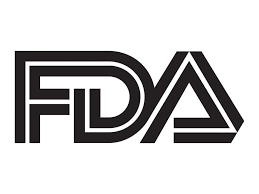Novavax Submits for Emergency Authorization of COVID-19 Vaccine
The application for NVX-CoV2373 is supported by promising data from 2 multinational trials conducted prior to the spread of the Omicron variant.

An original version of this article was published by sister publication Contagion.
Novavax has submitted an Emergency Use Authorization (EUA) application request to the US Food and Drug Administration (FDA) for its COVID-19 vaccine, NVX-CoV2373, in adults aged ≥18 years old.
The company's EUA was supported by findings from a pair of phase 3 clinical trials assessing the vaccine in multinational patients, including PREVENT-19—a randomized, placebo-controlled, observer-blinded study.
Investigators compared the vaccine to placebo 29,960 participants from 119 different locations across the US and Mexico.
The PREVENT-19 primary endpoint was first occurrence of PCR-confirmed symptomatic COVID-19—defined as either mild, moderate, or severe in status—with onset ≥7 days after the second vaccine dose among previously uninfected adult participants.
PREVENT-19 investigators reported an overall vaccine efficacy of 90.4% (95% CI, 82.9 – 94.6) for NVX-CoV2373 after 7 days post-second dose among participants previously not infected with SARS-CoV-2.
Among the 77 cases observed at the trial endpoint, 63 were among placebo participants and just 14 were among the vaccine participants. All cases were defined as mild per trial protocol. The observed 10 moderate cases and 4 severe cases all occurred within the placebo group, indicating a 100% efficacy (95% CI, 87 – 100) against moderate or severe disease with NVX-CoV2373.
In an assessment of high-risk populations—defined as persons >65 years old, ≤65 years old with high-risk comorbidities, or those at frequent COVID-19 exposure risk due to life circumstances—investigators reported a 91.0% vaccine efficacy (95% CI, 83.6 – 95.0) among the 75 relevant COVID-19 cases.
Preliminary data indicated generally good tolerance of NVX-CoV2373, with few adverse events. In fact, no single adverse event term was reported by more than 1% of trial participants.
Injection site pain after either dose, lasting ≤3 days, were the most commonly reported local symptoms. Commonly reported systemic symptoms included fatigue, headache, and muscle pain, each lasting <2 days in vaccinated participants.
Critically, both studies were conducted before the emergence and heightened prevalence of the Delta and Omicron variants of SARS-CoV-2 in the study regions.
NVX-CoV2373 is a protein-based recombinant nanoparticle vaccine designed from the genetic sequence of the first SARS-CoV-2 strain, to generate S protein-derived antigen.
Preclinical assessment of the vaccine showed its capability to induce S protein bind-blocking antibodies, while remaining well tolerated by patients.
NVX-CoV2373 is stored at 2-8 degrees Celsius, and is packaged in an immediate-use liquid formulation as 10-dose vials. It is designed as a two-dose administration, like mRNA vaccines BNT162b2 from Pfizer-BioNTech, and mRNA-1273 from Moderna.
2 Commerce Drive
Cranbury, NJ 08512
All rights reserved.